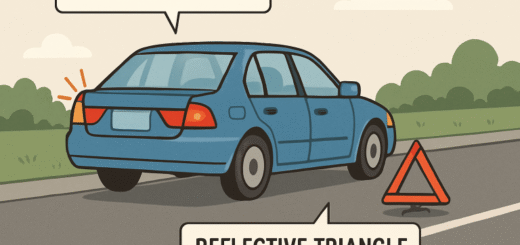The Truth About Gout and Foot Health According to Huntsville Foot Doctors

If you’ve ever woken up in the middle of the night feeling like your foot is on fire, you might already know a bit about gout. It’s the kind of pain that makes you reconsider everything you ate, every step you took, and maybe even the socks you’re wearing. Gout isn’t just a fleeting inconvenience; it’s a chronic condition that can put a serious damper on your daily life. So, what’s the real deal about gout and how it messes with your feet? Let’s break it down.
Understanding Gout and Its Impact on Foot Health
Gout is a type of arthritis that decides to settle in your feet and make itself at home. But it’s not just any arthritis; it’s the kind that sneaks up on you, bringing along sharp, burning pain. Gout happens when there’s too much uric acid in your blood, and your body decides to deposit those crystals right in your joints. The result? Intense pain, swelling, and redness, most often targeting the big toe.
But gout isn’t just about pain. It’s a warning sign from your body that something is out of balance. Ignoring it can lead to chronic foot problems, deformities, and difficulty walking. If you’re looking for a foot doctor in Huntsville AL or searching “foot doctor near me,” you’re already on the right path. Seeing a podiatrist early can save you from long-term issues.
How Gout Affects Different Areas of the Foot
The big toe gets all the spotlight when it comes to gout, but the truth is that gout can affect more than just this single joint. The midfoot, heel, and ankle are also prime targets. The reason? These areas have less blood flow, making it easier for uric acid crystals to form.
When gout flares up in the midfoot or ankle, it can make wearing shoes or even standing a nightmare. Swelling and stiffness can spread beyond the affected joint, causing pain that radiates throughout the entire foot. If left untreated, repeated gout attacks can damage the joints permanently. That’s why visiting a Huntsville foot doctor or a podiatrist can make all the difference in managing this tricky condition.
The Link Between Diet and Gout Pain in Your Feet
Diet plays a huge role in gout, and it’s one of the few things you can actually control to manage the pain. Foods high in purines, like red meat, shellfish, and alcohol, increase uric acid levels, which can lead to a gout attack. If you’ve ever experienced a sudden flare-up after a hearty meal, you know what we’re talking about.
Cutting back on purine-rich foods and staying hydrated can help keep uric acid levels in check. You don’t have to swear off your favorite foods forever, but moderation is key. A good foot doctor near you can offer dietary tips and personalized advice to help you enjoy your meals without fearing the pain that might come after.
Recognizing the Symptoms of Gout Before It Gets Worse
Gout doesn’t always start with excruciating pain. It often begins with a slight discomfort or a dull ache in the foot. You might notice redness, swelling, or a feeling of warmth in your joint before the full-blown pain hits. The big mistake many people make is ignoring these early signs.
By recognizing symptoms early and consulting a podiatrist in Huntsville AL, you can prevent a small problem from becoming a big one. Swelling, limited range of motion, or lingering tenderness are all red flags. Don’t wait for the pain to become unbearable before seeing a foot doctor. Early diagnosis and treatment can prevent chronic problems and keep you on your feet.
Treatments Huntsville Foot Doctors Use to Relieve Gout Pain
When gout strikes, relief can’t come fast enough. Thankfully, Huntsville foot doctors have a range of treatments to help manage the pain and inflammation. Prescription medications, like anti-inflammatory drugs and corticosteroids, are often the first line of defense.
In some cases, the foot doctor may recommend lifestyle changes or suggest special footwear to reduce pressure on the affected joint. If your gout attacks are frequent, your podiatrist might even suggest a treatment plan to lower uric acid levels long-term. Physical therapy and custom orthotics can also be beneficial in preventing further damage to the foot. A good podiatrist will tailor a plan specific to your needs, ensuring you get back to living pain-free as quickly as possible.
Tips for Preventing Gout Flare-Ups and Protecting Your Feet
Preventing gout isn’t just about medication; it’s also about making smart lifestyle choices. Staying hydrated is one of the simplest ways to reduce uric acid buildup. Water helps flush out excess uric acid, so keep a bottle nearby and sip throughout the day. Exercise also plays a role. While high-impact activities might be tough during a flare-up, low-impact options like swimming or cycling can help keep your joints healthy without stressing them.
Pay attention to your diet, and try to limit foods that are known to trigger gout attacks. Talk to your local foot doctor about specific foods to avoid and get recommendations tailored to your needs. Wearing supportive shoes can also help take pressure off your joints, making it less likely for uric acid crystals to settle in your foot.
















